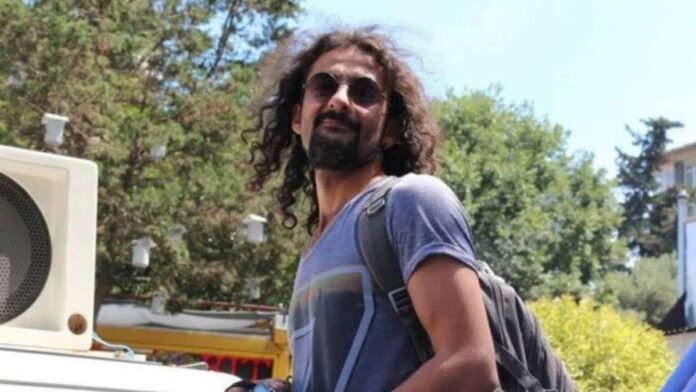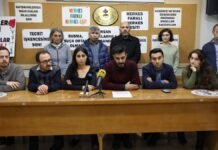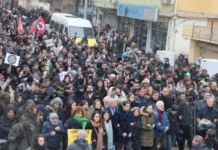Turkish journalist and environmental activist Hakan Tosun died on Monday after being violently attacked in İstanbul last week, sparking grief and demands for justice from media organizations, NGOs and politicians across Turkey, Turkish Minute reported.
Tosun, 50, was assaulted on October 10 in what his family and colleagues believe was a targeted attack linked to his coverage of environmental protests and issues. He was found unconscious on a street in İstanbul’s Esenyurt district in the early hours of Saturday morning, a police statement said. Tosun was hospitalized with severe head injuries, and doctors informed his family on Monday evening that his brain functions had irreversibly ceased.
The news of his death was shared on social media by journalist Fatoş Erdoğan, who also announced that Tosun’s organs would be donated. “Our friend and journalist Hakan Tosun has been declared brain dead. He had wanted his organs to be donated, so he leaves this world by giving life to others,” she wrote on X.
“Our friend, who fought for the right to life of wolves, birds, trees and people, was beaten to death. Until our voices are heard, we will keep asking: What happened to Hakan Tosun?” she added.
Tosun began his career as a radio technician in the early 1990s and later worked as a news editor and documentary filmmaker. He was known for his coverage and documentary work focusing on the struggle to protect the environment, urban activism and the fight against gentrification.
After doctors confirmed his brain death, dozens of journalists, environmental activists and supporters gathered outside Başakşehir Çam and Sakura City Hospital, where he had been treated.
Demet Parlar of the Climate Justice Coalition, an environmental group, said Tosun “had long been the voice of nature and the oppressed.” She urged authorities to identify the perpetrators and ensure accountability.
Lawyer Hakan Bozyurt from the Progressive Lawyers’ Association (ÇHD) said video footage, evidence and witness testimonies related to the attack were “largely incomplete,” calling on anyone who witnessed the incident or possessed recordings to share them with investigators.
A condolence ceremony for Tosun was held on Tuesday afternoon at Nurtepe Cemevi, an Alevi house of worship in İstanbul, with tributes pouring in for the journalist from environmental groups, political figures and rights advocates across the country, who described his death as a profound loss for both journalism and the environmental movement.
Pro-Kurdish Peoples’ Equality and Democracy Party (DEM Party) lawmaker Perihan Koca condemned the killing, demanding answers from authorities.
“They beat a journalist to death — a citizen who documented the memory of resistance. … Why has the interior ministry remained silent for days? … Who are the two people said to be under arrest?” she said.
The DEM Party also said in a statement on X that investigating the journalist’s death was “essential for press freedom and respect for the right to life.”
“This unacceptable and despicable attack not only targeted a journalist, but also the truth, press freedom and the right to information,” said Burhanettin Bulut, deputy chairman of the main opposition Republican People’s Party (CHP).
Turkey’s Association of Progressive Journalists said attacks on journalists had “become commonplace” in Turkey and demanded “clarity and accountability” about the incident, in a demand echoed by Reporters without Borders (RSF).
“All details about the motive for the attack on his life must be revealed. We are deeply saddened. We demand the harshest punishment for all those responsible,” RSF’s Turkey representative Erol Önderoğlu said.
According to his colleague, Mehveş Evin, Tosun had been covering environmental protests, including those in Kurtderesi, a neighborhood in the Samandağ district of Hatay in southern Turkey, where olive groves and citrus orchards are being destroyed under an “urgent expropriation” order, and resistance in Çorum, where villagers opposed a planned stone quarry.
It is common for journalists to face physical violence and judicial harassment in Turkey while engaging in their profession.
Turkey, which has been suffering from a poor record of press freedom, was ranked 159th out of 180 countries in the 2025 World Press Freedom Index by Reporters Without Borders (RSF).















